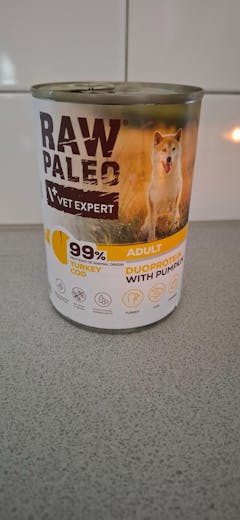Veterinärfoder till Hund: Specialiserad Näring för Optimal Hälsa
När din hund står inför hälsoutmaningar, oavsett om det är kroniska sjukdomar, allergier, viktproblem eller återhämtning efter operation, kan rätt kost spela en avgörande roll för dess välbefinnande och återhämtning. Veterinärfoder till hund, även känt som medicinskt foder, dietfoder eller terapeutiskt foder, är speciellt framtaget för att stödja hundens hälsa vid specifika tillstånd. Dessa foder är inte vanliga hundmat, utan snarare en del av en behandlingsplan som bör ordineras och övervakas av en veterinär. På Zoostar.se förstår vi vikten av specialiserad näring och erbjuder ett brett sortiment av högkvalitativt veterinärfoder för hundar från ledande varumärken, allt för att ge din hund de bästa förutsättningarna att må bra.
Vad är Veterinärfoder och Varför är det Viktigt?
Veterinärfoder är mer än bara hundmat; det är noggrant formulerade dieter vars näringsprofil är anpassad för att hantera specifika sjukdomar och hälsoproblem. Syftet är att:
- **Stödja Behandling:** Fodret kan bidra till att lindra symtom, bromsa sjukdomsförlopp och stödja kroppens läkningsprocess.
- **Minimera Belastning:** Genom att anpassa näringsinnehållet kan veterinärfoder minska belastningen på organ som redan är påverkade av sjukdom (t.ex. njurar, lever).
- **Förebygga Nya Problem:** Vissa veterinärfoder är designade för att förhindra återfall av vissa tillstånd, som urinstenar.
- **Säkerställa Näringsbalans:** Även om fodret är anpassat för en sjukdom, är det fortfarande näringsmässigt komplett för hundens grundläggande behov, vilket undviker näringsbrister.
Det är avgörande att veterinärfoder alltid ges på rekommendation av en veterinär efter en noggrann diagnos. Att ge fel typ av veterinärfoder, eller att ge det till en frisk hund, kan faktiskt vara skadligt.
Vanliga Användningsområden för Veterinärfoder
Veterinärfoder finns för en mängd olika hälsotillstånd:
1. Allergier och Foderintolerans:
För hundar som lider av allergiska reaktioner som klåda, hudproblem, öroninflammationer eller mag-tarmbesvär på grund av foder. Dessa veterinärfoder är ofta baserade på hydrolyserade proteiner (protein som är nedbrutet i så små delar att immunförsvaret inte reagerar på det) eller sällsynta proteinkällor som anka, viltkött eller insekter. De är också ofta spannmålsfria för att undvika vanliga allergener.
2. Mag- och Tarmproblem:
För hundar med känslig mage, kronisk diarré, förstoppning, IBD (Inflammatory Bowel Disease) eller pankreatit. Dessa veterinärfoder är ofta mycket lättsmälta, innehåller prebiotika och probiotika för att stödja en hälsosam tarmflora, samt ett balanserat fiberinnehåll.
3. Njurproblem:
När njurfunktionen är nedsatt, är det viktigt att minska belastningen på njurarna. Veterinärfoder för njurproblem har ett kontrollerat, lägre innehåll av protein och fosfor, samt anpassade nivåer av natrium och omega-3 fettsyror. Denna typ av foder kan finnas både som torrfoder och våtfoder.
4. Urinvägsproblem:
För att hjälpa till att lösa upp befintliga urinstenar (t.ex. struvitstenar) eller förhindra att nya bildas. Dessa veterinärfoder manipulerar urinens pH och har kontrollerade nivåer av mineraler som magnesium, fosfor och kalcium.
5. Ledproblem och Artros:
För hundar med artros, ledsmärta eller de som är predisponerade för ledproblem (t.ex. stora raser eller seniorhundar). Dessa foder innehåller ofta höga nivåer av ledstödjande ämnen som glukosamin, kondroitin och omega-3 fettsyror (särskilt EPA) som har antiinflammatoriska egenskaper.
6. Diabetes:
Diabetesfoder är utformade för att hjälpa till att stabilisera blodsockernivåerna hos hundar med diabetes. Dessa dieter är ofta fiberrika och har ett lågt innehåll av snabba kolhydrater.
7. Viktkontroll:
För hundar som är överviktiga eller behöver bibehålla en hälsosam vikt. Dessa veterinärfoder har ett lägre kaloriinnehåll men är fortfarande näringsmässigt kompletta, ofta med högre fiberhalt för att öka mättnadskänslan.
8. Lever- och Hjärtproblem:
Specialanpassade foder finns också för hundar med leversjukdomar (kontrollerat proteininnehåll och lättsmälta kolhydrater) och hjärtproblem (kontrollerade natriumnivåer och berikade med taurin och L-karnitin).
9. Konvalescens och Återhämtning:
För hundar som återhämtar sig från sjukdom, operation eller undervikt. Dessa är ofta högenergifoder med hög smältbarhet för att underlätta intag och näringsupptag när aptiten kan vara nedsatt.
Viktigt att Komma Ihåg vid Användning av Veterinärfoder
- **Veterinärrekommendation är A och O:** Köp och ge aldrig veterinärfoder utan en klar rekommendation från din veterinär. En felaktig diet kan försena återhämtning eller förvärra ett tillstånd.
- **Läs Etiketten Noggrant:** Kontrollera alltid att fodret är avsett för det specifika hälsotillstånd din hund har och att det matchar din veterinärs rekommendation.
- **Gradvis Övergång:** Precis som med all foderomställning, introducera veterinärfoder gradvis under 7-10 dagar för att undvika magbesvär.
- **Inga Tillsatser:** Undvik att blanda veterinärfoder med annat hundfoder eller ge vanligt hundgodis, om inte din veterinär specifikt har godkänt det. Detta kan späda ut den terapeutiska effekten.
- **Vattentillgång:** Se alltid till att din hund har tillgång till färskt vatten, oavsett om den äter torrfoder eller våtfoder.
Zoostar.se – Ditt Stöd för Hundens Hälsa
På Zoostar.se är vi dedikerade till att erbjuda högkvalitativa produkter som främjar din hunds hälsa och välbefinnande. Vårt sortiment av veterinärfoder till hund omfattar lösningar för många olika hälsotillstånd. Vi samarbetar med pålitliga tillverkare som garanterar vetenskapligt framtagna och effektiva dietfoder. Kom ihåg att vårt team inte kan ge medicinska råd, men vi är här för att erbjuda dig ett brett urval av de produkter din veterinär rekommenderar.
Utforska vårt fullständiga utbud av hundmat och foder, inklusive valpfoder, foder för äldre hundar, spannmålsfritt foder, och hundgodis och tuggbitar, samt mjölkersättning och valpvälling. Tillsammans med din veterinär, hjälper vi dig att välja det bästa veterinärfodret för din hunds specifika behov, och bidrar till ett friskare och lyckligare liv.
Vanliga frågor om Veterinärfoder till Hund
Här besvarar vi några av de mest frekventa frågorna vi får angående veterinärfoder för hundar.
Vad är veterinärfoder och när används det?
Veterinärfoder, även känt som medicinskt foder, terapeutiskt foder eller dietfoder, är speciellt formulerade dieter som är utformade för att hantera specifika medicinska tillstånd eller näringsbehov hos hundar. Till skillnad från vanliga kommersiella hundfoder, som är avsedda för friska hundar, är veterinärfoder noggrant sammansatt för att stödja behandling, hantera symtom och ibland till och med förebygga progressionen av sjukdomar. Dessa foder är inte godkända att säljas utan rekommendation från en veterinär, då de ofta har specifika näringsprofiler som inte är lämpliga för friska djur. När används veterinärfoder? Veterinärfoder används när en hund diagnostiseras med ett specifikt hälsoproblem som kan förbättras eller hanteras genom diet. Här är några av de vanligaste anledningarna: 1. Allergier och foderintolerans: För hundar med överkänslighet mot vissa ingredienser. Dessa foder innehåller ofta en enda, ovanlig proteinkälla (som anka, viltkött eller hydrolyserat protein – protein som är nedbrutet i så små delar att immunförsvaret inte reagerar på det) och en enda kolhydratkälla för att minimera allergiska reaktioner. Exempel: hudproblem, klåda, mag-tarmbesvär. 2. Mag- och tarmproblem: För hundar med kroniska mag-tarmsjukdomar som IBD (Inflammatory Bowel Disease), diarré, förstoppning, pankreatit (bukspottkörtelinflammation) eller malabsorption. Dessa foder är ofta mycket lättsmälta, har ett balanserat fiberinnehåll (lösliga och olösliga fibrer) och kan innehålla prebiotika och probiotika för att stödja tarmfloran. 3. Njurproblem: För hundar med nedsatt njurfunktion. Njurfoder har vanligtvis lägre protein- och fosforinnehåll för att minska belastningen på njurarna, samt anpassade nivåer av natrium och omega-3 fettsyror. 4. Urinvägsproblem: För att hjälpa till att lösa upp eller förebygga urinstenar (t.ex. struvit- eller oxalatstenar). Dessa foder manipulerar urinens pH och har kontrollerade nivåer av mineraler som magnesium, fosfor och kalcium. 5. Ledproblem och artros: För att stödja ledhälsa hos hundar med artros eller de som är predisponerade för ledproblem (t.ex. stora raser). Fodret innehåller ofta höga nivåer av glukosamin, kondroitin och omega-3 fettsyror (särskilt EPA) som har antiinflammatoriska egenskaper. 6. Diabetes: För hundar med diabetes. Dessa dieter är ofta fiberrika och har ett lågt innehåll av snabba kolhydrater för att hjälpa till att stabilisera blodsockernivåerna. 7. Viktkontroll: För överviktiga hundar som behöver gå ner i vikt eller hundar som behöver bibehålla en hälsosam vikt efter viktminskning. Dessa foder har ett lägre kaloriinnehåll men är fortfarande näringsmässigt kompletta, ofta med högre fiberhalt för att öka mättnadskänslan. 8. Leversjukdomar: För hundar med leversjukdomar. Dessa foder har ofta ett kontrollerat proteininnehåll och innehåller lättsmälta kolhydrater. 9. Hjärtproblem: För att stödja hjärtfunktionen hos hundar med hjärtsjukdomar. Dessa foder har ofta kontrollerade natriumnivåer och kan innehålla taurin och L-karnitin. 10. Konvalescens och återhämtning: Högenergifoder med hög smältbarhet för hundar som återhämtar sig från sjukdom, operation eller undernäring. Viktigt att komma ihåg: Veterinärfoder är medicinska produkter. De ska alltid ordineras av en veterinär som har ställt en diagnos och bedömt hundens specifika behov. Att ge fel veterinärfoder, eller att ge det till en frisk hund, kan vara skadligt. Din veterinär är bäst lämpad att rekommendera det specifika fodret, mängden och hur länge din hund ska äta det.
Måste jag ha en veterinärs ordination för att köpa veterinärfoder?
Ja, det är starkt rekommenderat och i många fall ett krav att ha en veterinärs ordination eller rekommendation innan du köper och ger din hund veterinärfoder (även kallat medicinskt foder eller dietfoder). Detta beror på flera viktiga skäl: 1. Diagnos krävs: Veterinärfoder är utformade för att behandla eller hantera specifika medicinska tillstånd. Utan en korrekt diagnos från en veterinär riskerar du att ge din hund fel foder, vilket inte bara är ineffektivt utan kan potentiellt förvärra hundens tillstånd eller till och med skapa nya hälsoproblem. Till exempel kan ett njurfoder vara skadligt för en hund med hjärtsjukdom, och vice versa. 2. Anpassad näringsprofil: Dessa foder har ofta en mycket specifik näringsprofil med anpassade nivåer av protein, fett, mineraler (som fosfor, kalcium, natrium), vitaminer och andra komponenter. Dessa nivåer är optimerade för att stödja en specifik sjukdom. Att ge ett sådant foder till en frisk hund, eller en hund med ett annat tillstånd, kan leda till näringsbrister eller överskott som är skadliga på lång sikt. 3. Övervakning av effekten: Veterinären kan behöva övervaka hundens respons på fodret och justera behandlingsplanen vid behov. Detta kan inkludera blodprov, urinanalyser eller regelbundna kontroller för att säkerställa att fodret har önskad effekt och att inga biverkningar uppstår. 4. Försäkringsfrågor: Vissa djurförsäkringar kan kräva att en veterinärs ordination ligger till grund för att de ska täcka kostnader relaterade till veterinärfoder som del av en behandling. 5. Långsiktig användning: Många veterinärfoder är avsedda för långsiktig eller livslång användning. En veterinär kan ge råd om hur länge fodret ska ges och om det är nödvändigt med en gradvis övergång tillbaka till vanligt foder, om det är aktuellt. 6. Juridiska och etiska skäl: Inom EU klassificeras veterinärfoder som "dietfoder för speciella näringsändamål" och är reglerade. Även om det inte alltid finns en specifik lag som kräver ett recept för varje enskild försäljning, uppmanas försäljningsställen (inklusive onlinebutiker som Zoostar.se) starkt att informera kunder om vikten av veterinärrådgivning och att de som köper fodret gör det på eget ansvar, för att säkerställa djurets bästa och efterleva etiska riktlinjer. På Zoostar.se, liksom hos de flesta seriösa återförsäljare, rekommenderar vi alltid att du rådgör med din veterinär innan du köper veterinärfoder. Detta är för din hunds säkerhet och hälsa. Vår kundtjänst kan inte ge medicinska råd eller rekommendationer gällande veterinärfoder.
Kan jag blanda veterinärfoder med annat hundfoder eller godis?
Att blanda veterinärfoder med annat hundfoder eller vanligt godis är i de flesta fall inte rekommenderat, och det kan till och med vara kontraproduktivt eller skadligt för din hunds hälsa. Orsaken ligger i att veterinärfoder är noggrant formulerade för att ha en mycket specifik näringsprofil som är anpassad för ett visst medicinskt tillstånd. Varför du bör undvika att blanda veterinärfoder: 1. Upphäver den terapeutiska effekten: Veterinärfoder är utformat för att "behandla" ett specifikt hälsoproblem genom att justera nivåerna av proteiner, fetter, mineraler (t.ex. fosfor, natrium), vitaminer, fibrer eller andra komponenter. Om du blandar det med vanligt foder, späder du ut eller ändrar dessa noggrant balanserade nivåer. Detta kan göra att fodret förlorar sin terapeutiska effekt och att hundens tillstånd inte förbättras eller till och med försämras. Exempel: - Njurfoder: Har låga nivåer av fosfor och protein. Blandar du med vanligt foder som har högre nivåer, kan njurarnas belastning öka igen. - Allergifoder: Innehåller ofta hydrolyserat protein eller en ny/ovanlig proteinkälla. Om du ger godis med en allergen som hunden inte tål, kan du utlösa en allergisk reaktion trots det specialanpassade fodret. - Foder för urinsten: Har en specifik mineralsammansättning och pH-balans. Andra foder kan störa denna balans och förhindra att stenarna löses upp eller att nya bildas. 2. Diagnostiska svårigheter: Om din hund har fått ett veterinärfoder som en del av en diagnostisk eliminationsdiet (t.ex. vid misstänkt allergi), kan introduktion av andra foder eller godis förstöra testresultaten och göra det omöjligt att fastställa allergin. 3. Övervikt och andra problem: Många veterinärfoder är också kalori- och näringskontrollerade. Att lägga till extra foder eller godis kan leda till övervikt, vilket i sig kan förvärra många hälsotillstånd (t.ex. ledproblem, diabetes, hjärtproblem). När kan man eventuellt blanda eller komplettera? I vissa specifika fall och ENDAST efter att ha rådgjort med din veterinär, kan det finnas undantag: - Veterinären kan i sällsynta fall rekommendera en mycket liten mängd av ett specifikt godis som är godkänt att ges tillsammans med det medicinska fodret, särskilt om hunden är väldigt kräsen. Dessa godisbitar är då ofta speciellt framtagna för att matcha dietfodret. - Om hunden är extremt kräsen med sitt veterinärfoder, kan veterinären föreslå att man blandar en liten mängd av ett särskilt anpassat våtfoder (som matchar dietfodret) för att öka smakligheten, eller ger ett specifikt tillskott som är säkert och som inte påverkar dietens terapeutiska effekt. - Om din hund ska gå över till ett nytt veterinärfoder, kan veterinären rekommendera en gradvis övergång genom att blanda det nya och gamla fodret under en kort period, men detta är en övergång, inte en långvarig blandning med ett annat icke-medicinskt foder. Sammanfattningsvis: Huvudregeln är att aldrig blanda veterinärfoder med annat foder eller godis om du inte uttryckligen har fått denna rekommendation från din behandlande veterinär. Att följa veterinärens anvisningar noggrant är avgörande för att säkerställa att dietfodret har den avsedda positiva effekten på din hunds hälsa och välbefinnande.
Allt du behöver veta om Veterinärfoder för Hundar
När ska man använda veterinärfoder och hur vet man att hunden verkligen behöver det?
Veterinärfoder är framtaget för att hantera specifika medicinska tillstånd som kräver kontrollerad näring, exempelvis allergier, övervikt, njursjukdom, diabetes, mag-/tarmkänslighet eller ledproblem. Fodret klassas inte som ”vanligt foder”, utan som ett dietiskt verktyg i en behandlingsplan, och ska därför användas när en veterinär anser att det finns ett medicinskt behov. Många hundägare märker förbättringar inom 2–6 veckor, men det är viktigt att inte byta till sådant foder på egen hand – fel diet kan förvärra ett tillstånd. Veterinärfoder bör ses som ett receptbelagt stödverktyg där rätt diagnos, övervakning och individuell anpassning avgör resultatet.
Kan man kombinera veterinärfoder med vanligt foder eller färskfoder?
I de flesta fall bör veterinärfoder ges exklusivt under behandlingen för att säkerställa rätt näringsprofil och optimal effekt. Att blanda med annat foder kan späda ut dietens medicinska funktion, förändra energibalansen eller återintroducera ämnen hunden inte tål. Undantag kan finnas – till exempel vid lång övergångsperiod eller vid reducerad aptit – men även då ska blandning ske kontrollerat, och helst i samråd med veterinär eller näringsrådgivare. Vid allergifoder gäller regeln 100 % strikt, eftersom även små mängder av fel protein kan trigga reaktioner. Om man vill toppa fodret med våtfoder bör det vara från samma veterinärserie och anpassat för samma diagnos.
Hur lång tid tar det innan man ser resultat av veterinärfoder?
Effekten varierar beroende på diagnos och hundens individuella förutsättningar. Vid mag- och tarmproblem kan förbättring märkas redan inom några dagar när irritationen lägger sig, medan hudallergier ofta kräver 6–12 veckor för att päls och hudbarriär ska läka ordentligt. Vid viktkontroll tar processen längre tid – målet är 1–3 % viktminskning per vecka för att undvika muskelförlust. För kroniska tillstånd som njurproblem eller diabetes handlar det oftast om livslång kostbehandling där målet är stabilisering snarare än bot. Viktigast är konsekvens: byter man foder, toppar med annat eller ger godis kan resultatet utebli.
Vad är skillnaden mellan olika typer av veterinärfoder, till exempel allergi-, njur-, och led-foder?
Varje dietfoder är utvecklat för ett specifikt organ- eller systemstöd. Allergifoder använder ofta hydrolyserat protein eller monoprotein för att minimera immunsvar och inflammationsreaktioner. Njur- och leverspecifika foder har reducerade proteinnivåer, kontrollerad fosfor och stödjande fettsyreprofil för att avlasta organen. För mage/tarm fokuserar fodret på lättsmälta ingredienser, prebiotika och fiberbalans som stabiliserar avföring och tarmflora. Ledfoder innehåller ofta glukosamin, kondroitin och omega-3 (EPA/DHA) för att minska inflammation och stödja brosk. Varje kategori har alltså en tydlig medicinsk funktion – det är inte bara smak eller ingredienslista som skiljer dem åt, utan hela näringsstrategin.
Vad händer om man avbryter veterinärfodret eller byter till vanligt foder för tidigt?
Att avsluta dieten innan tillståndet är stabilt kan innebära att symptomen snabbt återkommer – ibland inom dagar, ibland efter veckor. Vid allergidiagnostik kan ett för tidigt återintroducerat protein göra att hela utredningen måste startas om från början. Vid kroniska diagnoser, som njur- eller leversjukdom, kan fel foder påverka organen negativt och påskynda försämring. För överviktiga hundar kan ett snabbt byte ge viktuppgång då energitäthet och portionsstorlekar plötsligt blir fel. Om man överväger att avsluta en diet bör det alltid ske gradvis, och helst efter veterinärens rekommendation samt med regelbunden uppföljning.
Husdjursprodukter Online
Utforska fler populära hundkategorier
Här hittar du många av våra mest efterfrågade kategorier – från hundfoder och godis till tillbehör, vård och aktivering.
Ledande Fodertillverkare
Populära hundfodermärken
Här hittar du våra mest populära hundfoder – från spannmålsfritt till veterinärfoder. Klicka på ett varumärke för att se hela sortimentet.






